

The Pensacola & Perdido Bays Estuary Program (PPBEP) was awarded a Bay Watershed Education and Training (B-WET) grant from the National Oceanic and Atmospheric Administration (NOAA) to implement Meaningful Watershed Educational Experiences (MWEEs) for local teachers and students.
The funding supports the exploration of watershed concepts through the lens of Pensacola oysters over a two-year period. The culturally, economically, and environmentally significant Pensacola oyster fishery and habitat, combined with recent investments into research, restoration, and aquaculture, serves as an ideal, locally relevant case study for students to explore complex and evolving watershed issues. Year 1 of the grant focuses on teacher professional development and Year 2 focuses on implementation in the classroom.
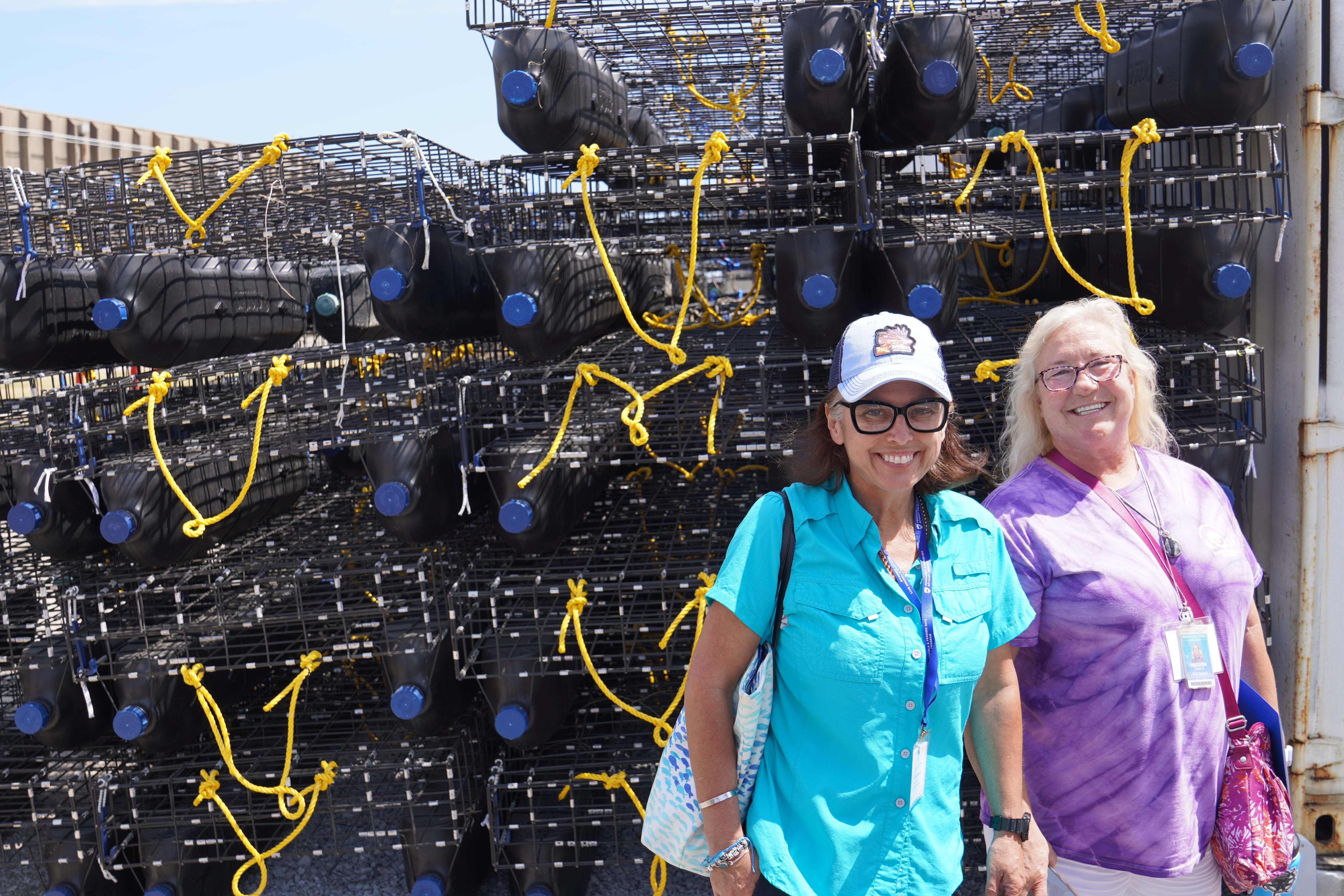
Charlene Mauro (Navarre Beach Marine Science Station) and Tami McConnell (Navarre High School) at Pensacola Bay Oyster Company.
Eleven High School teachers from Escambia, Santa Rosa, and Okaloosa counties participated in the Pensacola Oyster Teacher Discovery workshop from June 5-9, 2023. The paid week-long workshop provided teachers with extensive background knowledge on Pensacola oysters and included local data and case studies that can be incorporated into the classroom. Field trips and guest speakers included:
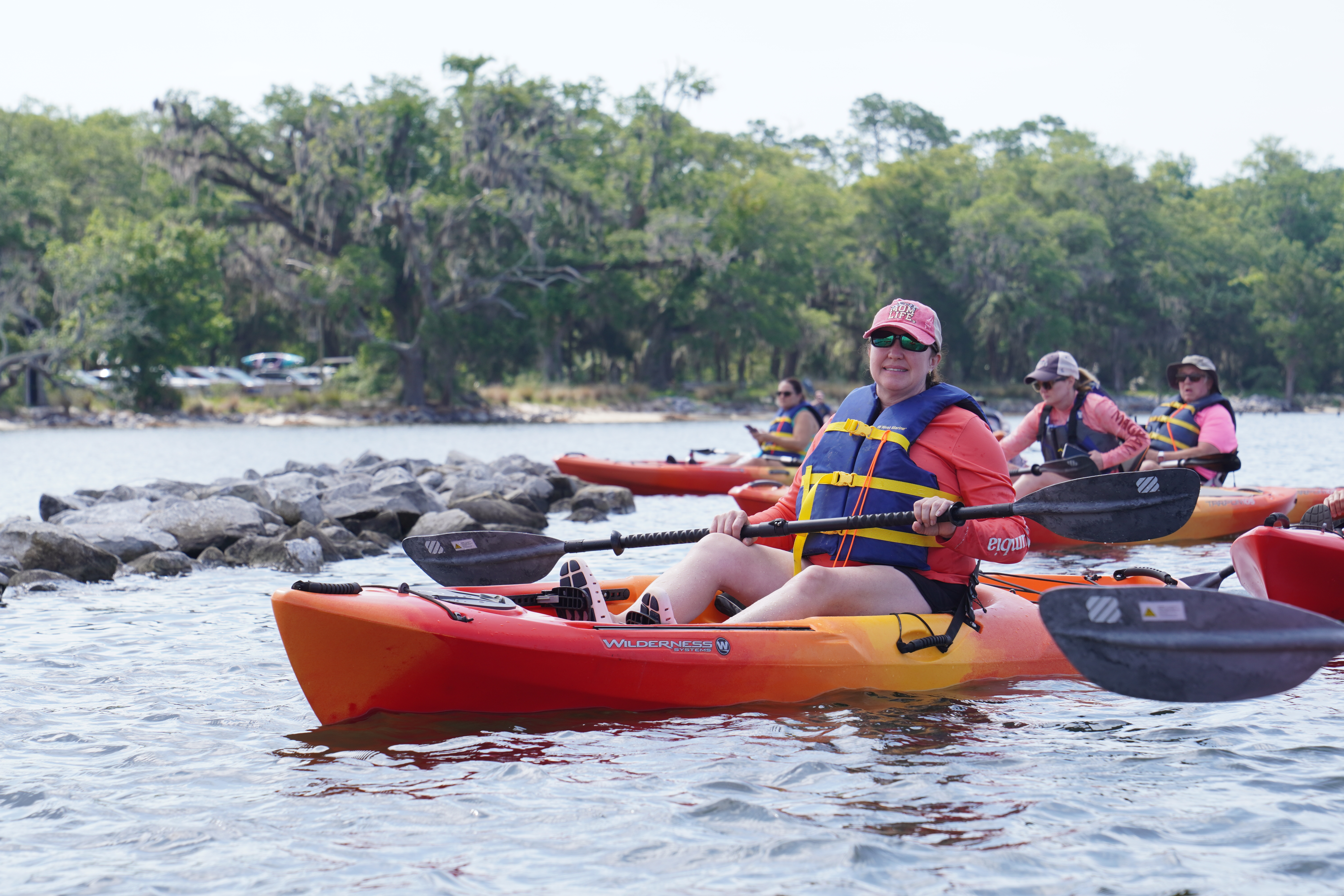
Dena Pruden (Navarre High School) kayaking at East Bay Oyster Habitat Restoration Project tour.
The teachers learned about watershed dynamics, oyster biology and ecology, oyster farming (a type of aquaculture), local water quality issues, natural resource decision making, restoration efforts, and much more. Equipped with this knowledge, these teachers will be able to share locally relevant data, case studies, and field trips with their students during the 2023-2024 academic year, and beyond. The grant supports the cost of supplies, buses, and substitute teachers for student field trips, a critical component of the MWEEs.
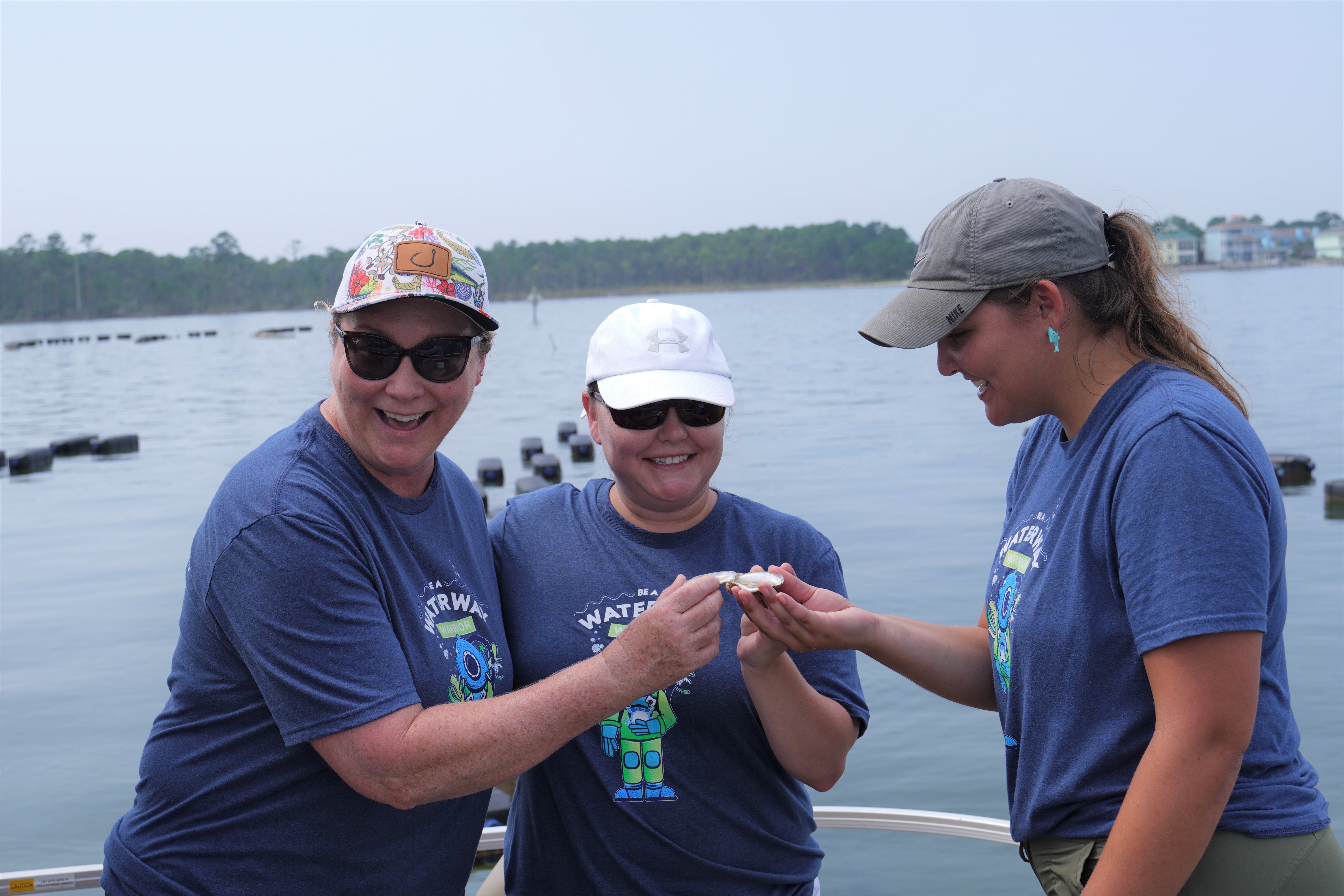
Katharine Edwards, Leah Cochran (Gulf Breeze High School) and Madi Ross (PPBEP) try oysters from Grayson Bay Oyster Company's farm.
The MWEE framework focuses on student driven investigations into locally relevant environmental issues that include learning both inside and outside of the classroom. Essential elements of the MWEE include student’s identifying a question to explore, outdoor field experiences, and synthesis and conclusions, which are used to inform student driven environmental action projects.
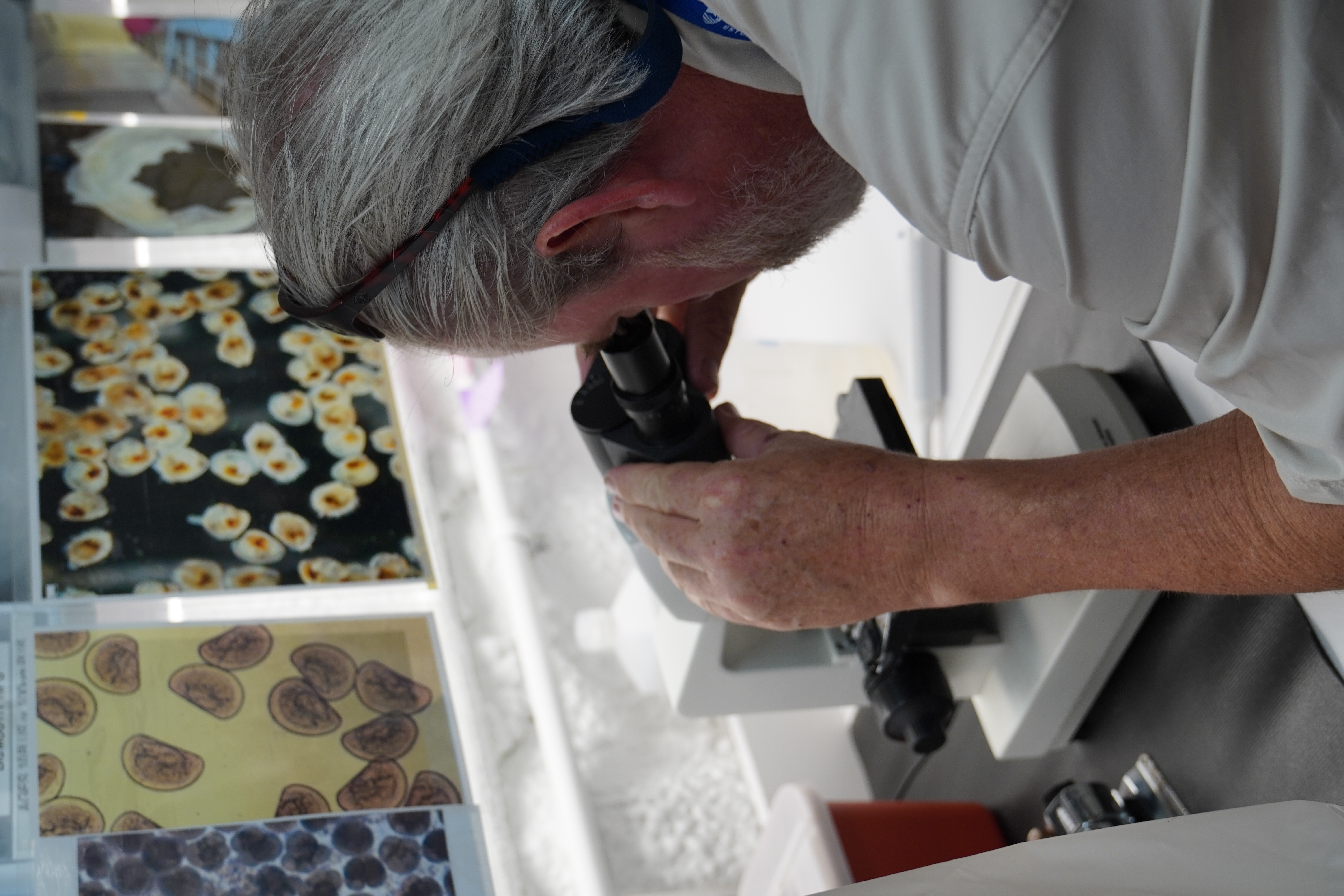
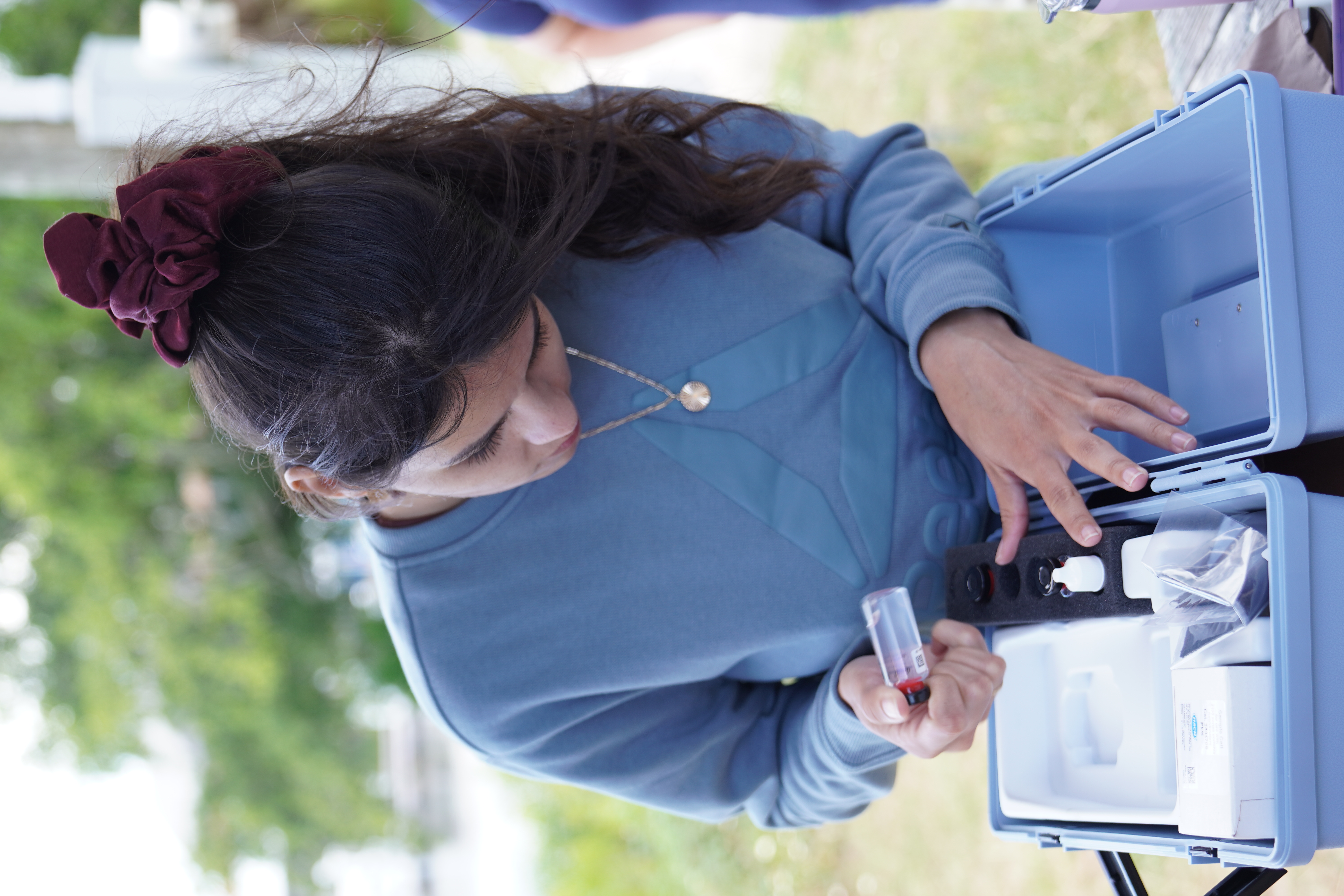
Matt MacGregor (West Florida High School) examining oyster larvae and Keanna Nimpchaimanatham (Escambia High School) with turbidity meter.
Estuary Program staff will work to further develop lessons and resources this summer based on input from the participating teachers. These classroom resources will be made available to all interested teachers on the Estuary Program’s website once they are completed. The Estuary Program’s education staff will work directly with the 11 teachers that completed the workshop to facilitate field trips and lessons with their students during the upcoming academic year, culminating with student action projects.
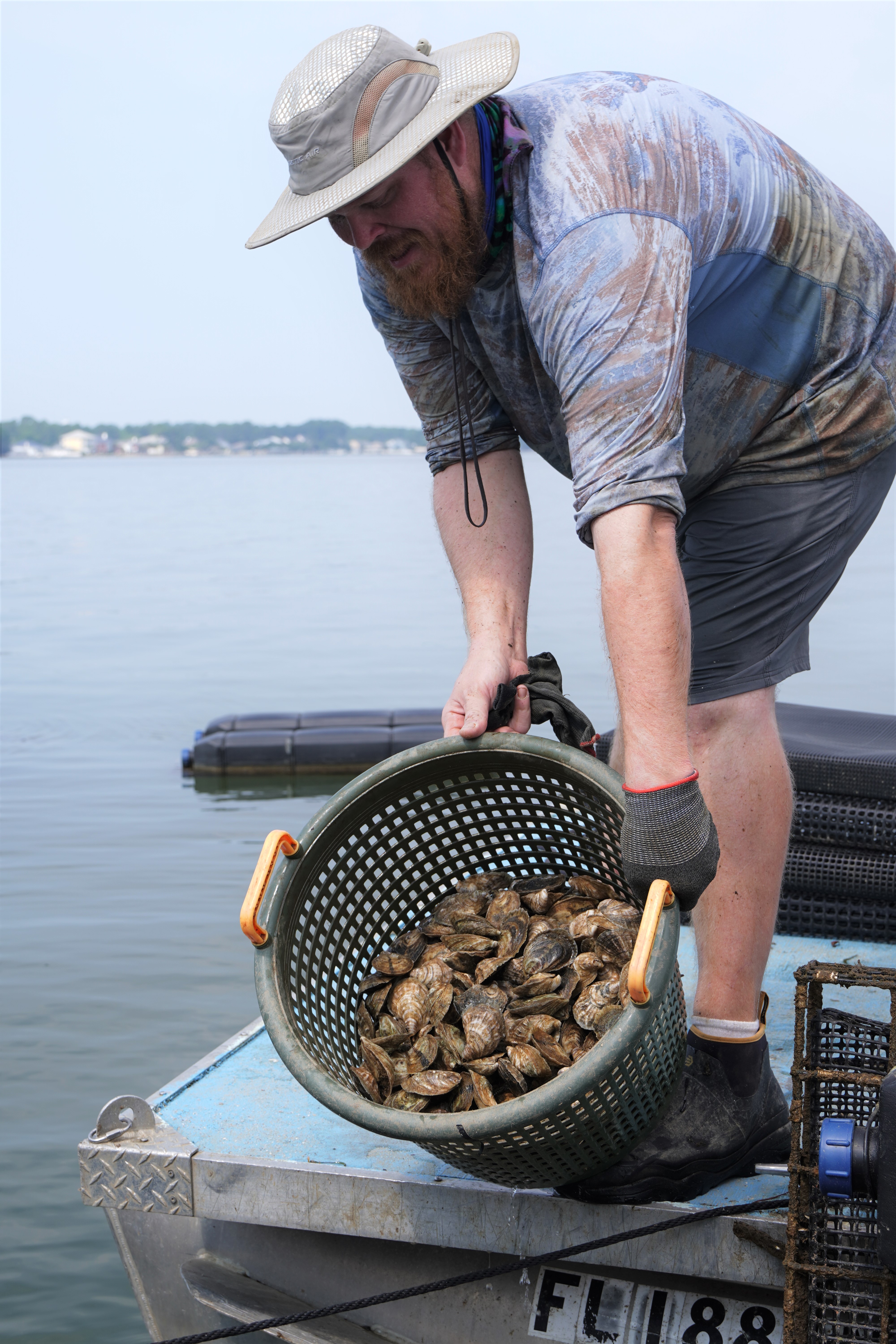
Corey Richardson, Grayson Bay Oyster Company.
Based on high demand for the workshop and requests from participating teachers, the Estuary Program aims to make the teacher workshop an annual effort. This goal will require financial support from the community to ensure the workshops can continue to be offered at no-cost to teachers and cover re-occurring field trip and supply costs. Community members or business interested in investing in the future of our waters by providing hands on educational experiences to local teachers and students can learn more at https://estuary101.com/donate/.
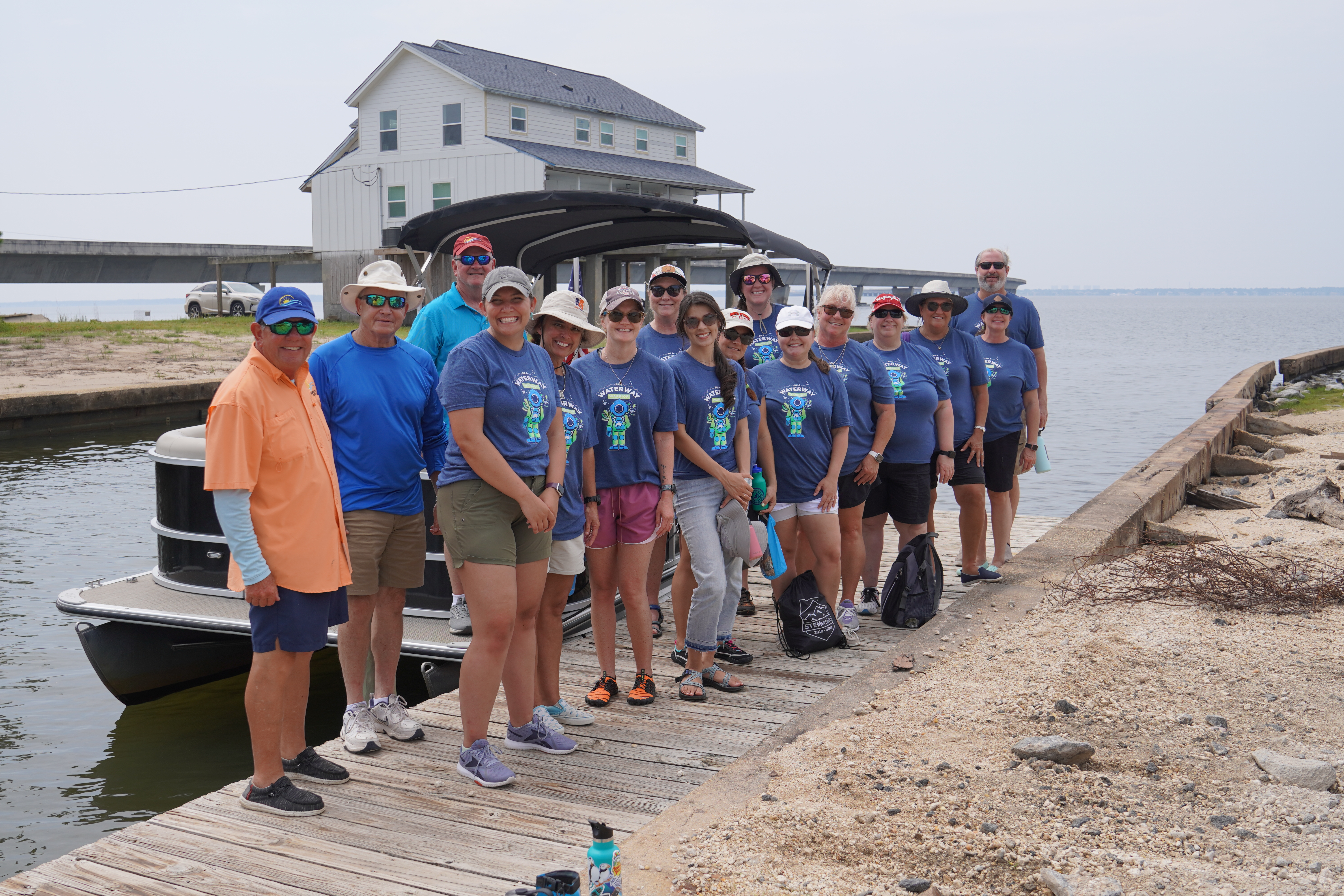
Group photo after Grayson Bay Oyster Company Farm Tour